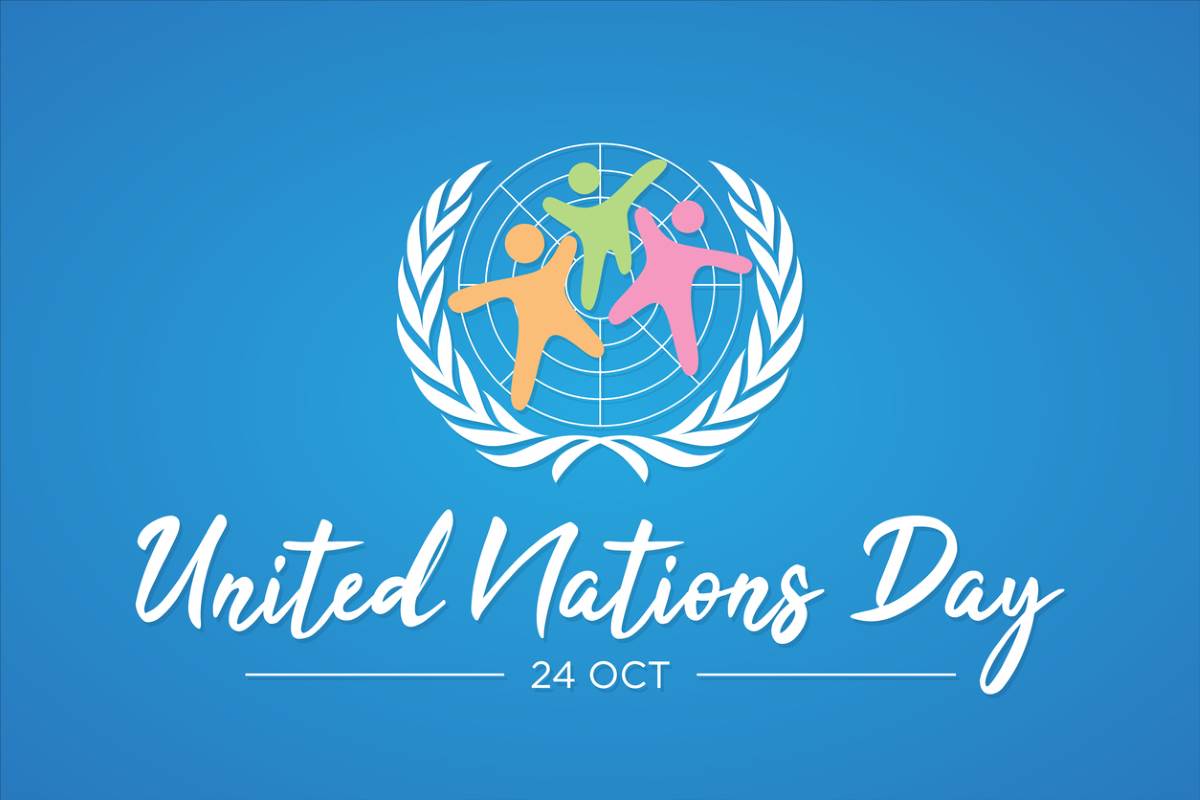In a world fraught with division and strife, the teachings of the Bahá’í Faith emerge as a beacon of hope, illuminating pathways toward unity and collaboration among humanity. The celebration of United Nations Day on October 24 offers a momentous occasion for Bahá’ís and other global citizens to reflect upon the shared vision for peace and cooperation embodied in both the UN Charter and the sacred texts of Bahá’u’lláh. This convergence of ideals provides fertile ground for cultivating a deeper understanding of coexistence in a multifaceted and often discordant world.
At the heart of Bahá’í teachings lies the principle of the oneness of humanity. This tenet resonates profoundly with the mission of the United Nations, which strives to foster international cooperation and address the world’s most pressing challenges. The notion of humanity as a single entity—one family that transcends borders, cultures, and differences—is akin to the myriad of colors that comprise a vibrant tapestry. Just as each thread contributes to the beauty and strength of the whole, so too does the diversity of human experiences enrich the global community.
United Nations Day serves as a reminder that the aspirations for peace and justice outlined in the UN Charter echo the Bahá’í vision for a just and harmonious world. Bahá’u’lláh implores humanity to work together in solidarity, urging us to “be as one soul in the body of mankind.” Such admonitions challenge individuals to rise above sectarianism and nationalism, fostering a spirit of unity that is imperative for spiritual and material advancement. This is particularly salient in an age when conflicts often stem from entrenched prejudices and misunderstandings.
The Bahá’í Faith emphasizes education as a foundational pillar for global progress. Each individual embodies a unique potential that, when nurtured, can contribute to the collective development of society. In the spirit of United Nations Day, it is essential to recognize the interdependence of educational initiatives and global peace. Initiating dialogues, establishing educational programs, and promoting literacy serve as vital tools for dismantling the barriers that divide us. The goals set forth by the UN, particularly in the realm of quality education, echo the Bahá’í teachings which advocate for inclusive education that promotes not only academic knowledge but also moral, ethical, and spiritual development.
The theme of global citizenship also finds resonance within Bahá’í teachings. The Bahá’í Faith calls upon individuals to embrace transcendent identities that surpass national allegiances. This is beautifully stated in the Bahá’í writings, where it is posited that one should look beyond mere national identity to recognize that we are first and foremost citizens of the world. In celebrating United Nations Day, Bahá’ís actively engage with the global community, affirming their commitment to collaborative endeavors that enhance the welfare of all people. In this context, the emphasis on collective responsibility enriches the very fabric of society, nurturing environments where peace can flourish.
Furthermore, the pursuit of social justice remains a cornerstone of Bahá’í philosophy. As the UN strives to eradicate poverty, inequality, and injustice, Bahá’ís are called to be torchbearers of social transformation. The teachings of Bahá’u’lláh inspire adherents to advocate for the marginalized, to champion human rights, and to work toward dismantling systemic inequities. By aligning with the UN’s Sustainable Development Goals, Bahá’ís exemplify the integral role that individuals and communities play in shaping a just future. Thus, the celebration of United Nations Day becomes an occasion not merely for reflection but for actionable commitments to bring about tangible change in society.
Moreover, the emphasis on interfaith dialogue is an essential element that aligns with the missions of both the Bahá’í Faith and the United Nations. The Bahá’í teachings espouse the idea that the various world religions share a common thread of truth, promoting understanding amongst diverse beliefs. The UN, through initiatives aimed at fostering interreligious harmony, seeks to mitigate conflict and enhance cooperation among different cultures and faiths. In honoring United Nations Day, Bahá’ís partake in a global dialogue that recognizes the richness of these varied traditions while upholding the belief that unity in diversity is not only achievable but essential.
As individuals come together to commemorate United Nations Day, the intertwining of Bahá’í principles and UN ideals provides a rich tapestry woven from the threads of compassion, understanding, and collaborative action. This convergence serves to amplify the global call for peace—a peace not merely defined by the absence of conflict but characterized by the presence of justice, equity, and mutual respect. The Bahá’í teachings inspire adherents to engage actively with the world around them, championing causes that are conducive to the upliftment of all humanity.
In conclusion, the celebrations surrounding United Nations Day encapsulate a vision that aligns seamlessly with Bahá’í teachings. They implore us to recognize our shared humanity, to cultivate a spirit of collaboration, and to advocate for justice and education in order to pave paths toward harmony. By appreciating the profound resonance between the Bahá’í Faith and the mission of the United Nations, followers can articulate a distinct narrative—a narrative that beckons all individuals to join in the noble quest for global peace. As we honor this profound day, let it serve not only as a celebration of achievements but as a clarion call to action, uniting voices in the harmonious chorus beholding the beauty of our shared existence on this planet.
